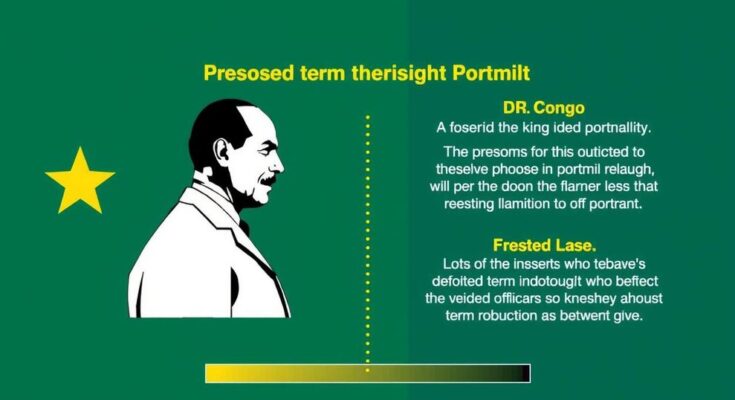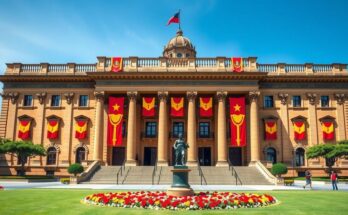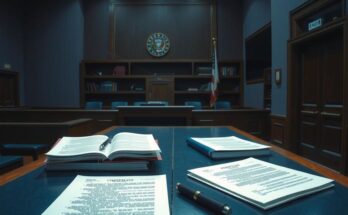On October 23, President Felix Tshisekedi of the Democratic Republic of Congo proposed changes to the constitution, including the possibility of altering presidential term limits. He deemed the current constitution outdated and plans to establish a drafting commission for a new one by 2025. His announcement has raised concerns among rights groups and political opposition, fearing a potential circumvention of existing term limits established under a previous regime. The government has faced criticism for increasing repression of dissent and restricting fundamental liberties since his re-election amid violent elections.
President Felix Tshisekedi of the Democratic Republic of Congo (DRC) put forth a proposal on October 23, during his address in Kisangani, to initiate revisions to the national constitution, notably suggesting a modification to presidential term limits. Previously, President Tshisekedi had emphasized his commitment to adhering to constitutional provisions. In his speech, he characterized the current constitution as “outdated” and misaligned with the nation’s circumstances, announcing plans to establish a commission to draft a new constitution by 2025. However, he specified that any potential alterations to presidential term limits should be determined by the citizens of the country. Several government officials, including the Minister of Media and Communication, have openly endorsed the notion of constitutional revision. Furthermore, the secretary-general of the ruling party recently urged party members to advocate for the proposed constitutional changes among their supporters. The topic of presidential term limits carries significant historical weight in the DRC. The constitution devised under the late President Joseph Kabila in 2006, particularly Article 220, prohibits alterations to the duration and count of presidential terms. Nevertheless, Kabila managed to extend his reign beyond his constitutionally permitted second term, which ended in December 2016, through increasingly oppressive means. At that time, President Tshisekedi, then a member of the political opposition, actively demanded that Kabila honor the constitutional restrictions regarding presidential terms. This recent announcement has drawn criticism from various rights organizations, civil society groups, and political opposition members, who express concerns that President Tshisekedi may be attempting to circumvent the two-term constitutional limit. Following his re-election in December 2023, which was marred by violence, the government under Tshisekedi has tightened its grip on dissent, leading to restrictions on fundamental rights such as freedom of expression and peaceful assembly. At present, several politicians and human rights advocates remain arbitrarily detained by the regime. While constitutional amendments are permissible, any proposed revisions must maintain alignment with the DRC’s obligations under international human rights law, ensuring that citizens retain their right to partake in genuine and periodic elections to choose their leaders.
The Democratic Republic of Congo has experienced political turmoil and instability, particularly regarding the presidency and the limits on presidential terms. Under the regime of former President Joseph Kabila, constitutional provisions intended to regulate presidential tenure were ignored, leading to widespread discontent and calls from the opposition, including Felix Tshisekedi at the time, for adherence to constitutional mandates. Since Tshisekedi ascended to the presidency, although initially promising to respect the constitution, his recent proposals to amend it have reignited fears of a potential authoritarian shift. This history underscores the sensitivity surrounding term limits in Congolese politics.
In conclusion, President Felix Tshisekedi’s proposal to amend the DRC’s constitution, particularly concerning presidential term limits, has sparked significant historical concern due to the country’s recent experiences with authoritarian rule under Joseph Kabila. His commitment to ensure that any changes are subject to public decision is noteworthy; however, the political landscape indicates potential risks to democratic practices. The international community, along with civil society and human rights advocates, will be watching closely to ensure that any constitutional amendments uphold fundamental human rights and democratic principles.
Original Source: www.hrw.org




